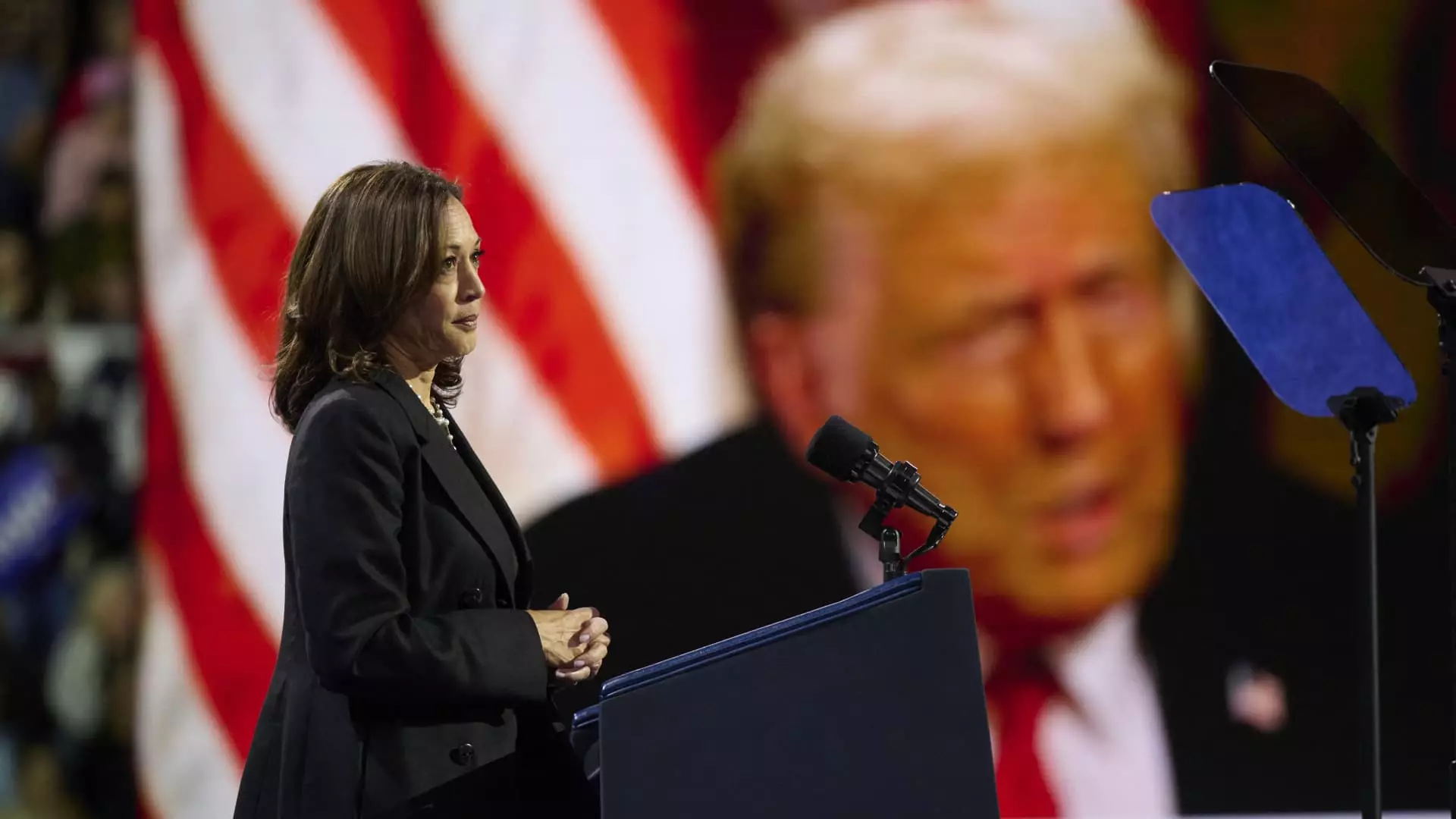In recent weeks, political betting markets have increasingly taken center stage in the lead-up to the 2024 presidential election, particularly with the dramatic shift in betting patterns centered around former President Donald Trump. Noteworthy scrutiny has emerged surrounding four significant accounts that have collectively wagered over $28 million on Trump’s chances of reclaiming the presidency. This influx of capital has not only sparked questions about the integrity of the betting system but also sheds light on the burgeoning intersection of finance and politics in the digital era.
Polymarket, a platform specializing in political betting, confirmed suspicions that these four accounts—designated as Fredi9999, Theo4, PrincessCaro, and Michie—are controlled by a single entity, a French national with a robust background in trading and finance. This revelation, while illuminating, raises questions regarding the influence this singular trader might exert over the betting market. With such heavy financial backing, one must ponder if the actions of this trader could disproportionately sway the perception of Trump’s viability as a candidate, which might not correlate with the genuine sentiment among the electorate as reflected in traditional polling methods.
A company spokesperson for Polymarket asserted to CNBC that there was no evidence of market manipulation or any dubious intentions behind the trader’s monetary involvement. The platform has engaged third-party experts to probe these claims, emphasizing the integrity of its operations against the backdrop of a heightened focus on political betting. Nevertheless, the very fact that one individual holds such significant sway raises inherent concerns about market fairness and transparency. Although the absence of malfeasance was reported, the potential for perceived or real manipulation remains a haunting specter for stakeholders in these markets.
Contrastingly, the four accounts’ activities on Polymarket, which depict an apparent growth in Trump’s prospects, diverge from conventional polling data that indicates a much tighter race with Vice President Kamala Harris. Trump’s supporters have heralded these betting shifts as indicative of a growing grassroots enthusiasm, yet the reliability of prediction markets compared to traditional polling methodologies remains a contentious debate. Polymarket itself underscored this distinction, clarifying that prediction markets assess the likelihood of future events, while polling gauges potential voter intentions. This critical differentiation is pivotal for understanding the misleading implications that might arise when treating betting platforms like public opinion barometers.
The power of social media in shaping public opinion cannot be underestimated, and figures like Elon Musk have taken to platforms like X to advocate for betting markets as more accurate predictors of political contests than polls due to the financial stake involved. These assertions lend credence to the notion that individuals tied to the political sphere are pushing narratives that may inflate the perceived viability of certain candidates. This interplay between social media influence, financial betting, and electoral outcomes creates a complex web that complicates our understanding of voter sentiment and electoral prospects.
In light of the recent surge in interest surrounding political betting, one must consider the implications of the ongoing regulatory environment. Following a 2022 settlement with the Commodity Futures Trading Commission (CFTC), Polymarket has been rendered unavailable to U.S. traders; nevertheless, competitors like Kalshi and Interactive Brokers are beginning to carve out their niches. Despite regulatory challenges, the rise of political betting platforms highlights a cultural shift that blends politics with finance, creating new avenues for engagement.
As the 2024 presidential election approaches, the dynamics of political betting will continue to evolve, challenging our understanding of both politics and economics. It is critical for voters and participants in these markets to remain vigilant and discerning, ensuring that they do not conflate betting odds with actual electoral realities. The ultimate question remains whether these platforms will enrich the democratic discourse or contribute to a more fragmented understanding of political allegiance and electoral potential. Keeping a watchful eye on these trends could provide invaluable insights for both the electorate and policymakers in the years to come.


Leave a Reply